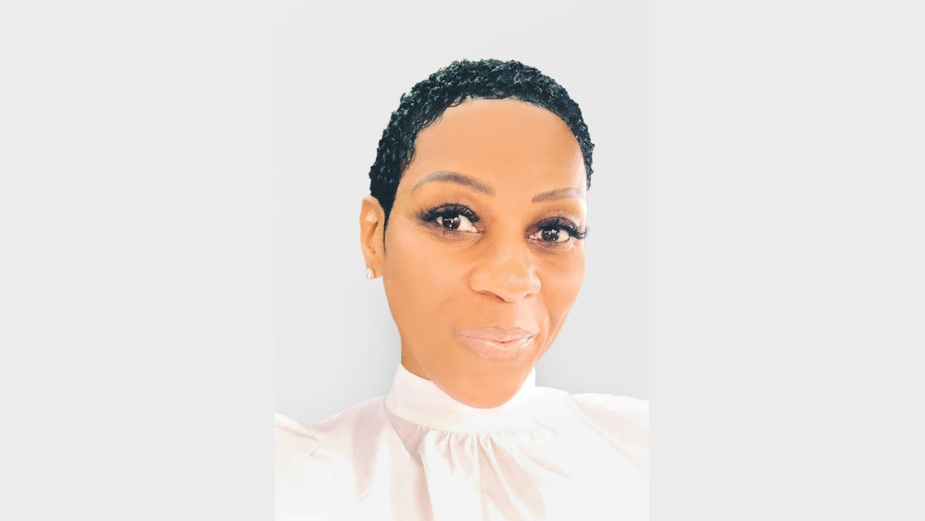
Production Line: Angela R. Barber

Angela R. Barber is SVP content production, North America at Wunderman Thompson. Her expertise spans more than 20 years and she has delivered content for all platforms; global campaigns, film content, TV and radio broadcast commercials, digital and social activations, experiential and marketing events, print, websites, interactive banners, landing pages, and audio podcasts. She has worked in content production for agencies such as Deutsch, 72andSunny, 180LA, BBDO, R/GA, and many more. Angela has also served as executive creative producer for brands like Beats by Dre/Apple, Twitter, Mattel, and Snap, Inc.
Here, she continues our chats with agency producers to get the lowdown on their role and what's affecting it in 2021.
LBB> What lasting impact has the experience of the pandemic had on how you and Wunderman Thompson think about and approach production?
Angela> The lasting impact that the pandemic has left on me and the production community is that it has forced us to be extremely realistic, cautious and careful in planning for production in-person and virtually. This requires specific casting, more time, sometimes more crew, and more budget.
LBB> Aside from Covid-19, what have been the most disruptive forces to hit agency production in the past few years?
Angela> The disruption actually happened approximately 10 years ago when the advertising triangle was flipped (digital & social content 1st, brand engagement and experiences 2nd, and broadcast content 3rd) and we realised that consumers are consuming content differently, mostly online. The priority is now to produce as much digital/social content and brand experiences as possible; broadcast is the nice-to-have. Because of this shift, clients do not want to wait for content, so we have to shorten the distance between creating and making; this is the new normal.
LBB> A good producer should be able to produce for any medium, from film to events to digital. Do you agree?
Angela> I agree that good producers should be integrated, creative and producing for all platforms by now… There are no single-discipline producers who can add value across an entire campaign. Clients want synergistic/cohesive 360 campaigns, so we need producers who are well-versed in creating and maintaining the strategy, creative throughline, and are consistent and efficient with execution, budgets and timeline.
LBB> And leading on from that, when it comes to building up your team at WT, what’s your view on the balance of specialists vs generalists?
Angela> I think integrated creative producers are specialists who can help shape the strategy and spearhead creative ideas from concept through all phases of creative development, production and post-production. Generalist?! What does that mean…?! Casting is very important and so is diversity and inclusion. We can’t affect or impact the culture or make relevant work if we don’t include a diverse group of voices/opinions/ideas who represent the real world.
LBB> What’s your own pathway to production? When you started out, what sort of work were you producing and what lessons have stayed with you in that time?
Angela> My path to production was by way of producing movie trailers for home video products for Disney/BVHV, back in the day... I learned that understanding and contributing to the brand strategy and creative will make for better and more robust production executions. I’m a creative partner no matter where I work... agency or brand side.
LBB> If you compare your role to the role of the heads of TV/heads of production when you first joined the industry, what do you think are the most striking or interesting changes? And what surprising things have stayed the same?
Angela> I think advertising has evolved, not all agencies, but advertising as a whole looks different. We’re not only competing with other agencies for brand AORs and projects but now most clients have invested in internal creative and production departments staffed with agency talent. We/agencies need to be multi-disciplined, more efficient with budgets, and we need to integrate disciplines by bringing everybody to the table at the assignment intake phase. This allows us to make more content, make it faster, and engage with the consumers more intimately. We need to meet consumers where they are; online, through brand experiences, via broadcast. But mostly online via mobile, tablets and computers. Brands can no longer rely on the big splashy TV spots and expect to move products off the shelves... Clients are rarely budgeting for broadcast these days. Consumers want to engage with the brands they like, and they want to experience the product offerings. Surprisingly, there are still agencies that have not fully adapted to this way of servicing their clients.
LBB> When working with a new partner or collaborator, how do you go about establishing trust?
Angela> I treat all extensions to production (director, editors, composers, etc.) as true production partners and I always ensure them that we will work as a collaborative cohesive team.
LBB> When it comes to educating producers, how does WT like to approach this?
Angela> I think we should all be students of our trade, since it’s forever evolving... I study technology and I’m always doing informational meetings with directors, editors, etc. to pick their brains. Sharing knowledge amongst producers and hands-on mentorship is still the best practice that I find to be really effective. Also, inviting production and post production companies to roadshow their talent is also a good way to be current, aware and to consider the best options for each project.
LBB> Should production have a seat in the C-suite?
Angela> Production should for sure have a seat in the C-suite because the producer is the central nerve system of projects. It’s a critical discipline with special capabilities and we should be respected, recognised, and appreciated for the contributions we make to shaping the strategy, creative, and production execution. Ideation and execution at every level go hand in hand, it’s a team sport.
If creative is recognised at the C-suite level, then so should production. There’s no ‘I’ in TEAM! I report to Vin Farrell who is chief content officer North America. We’re at the table in the C-suite, this is already a reality!
LBB> How have you approached integrating data with production workflows and processes? And generally, how has data and the fact that we have constant live feedback on content performance changed production?
Angela> When I worked at Twitter and Snap, we were able to collect and study the data daily/weekly and affect the work in real time. The growth teams are tasked with getting data quickly and sharing it so that we could adjust and meet consumer expectations. The agency side is still catching up to this model.
LBB> Clients’ thirst for content seems to be unquenchable - and they need content that’s fast and responsive! What’s the key to creating LOTS of stuff at SPEED - without sacrificing production values? Is it even possible?
Angela> The key is to include all disciplines earlier in the process, ideally at the assignment intake phase. Move everybody upstream in the creating/making process. Production values will be strengthened, not sacrificed because all of the thinking and planning for execution starts earlier in the process.
LBB> To what extent is production strategic - traditionally it’s the part that comes at the ‘end’ of the agency process, but it seems in many cases production is a valuable voice to have right up top - what are your thoughts/experiences of this?
Angela> Production is strategic, we have to understand the creative intent, conceit, and the consumer in order to help establish and define the possible deliverables and the plan for execution.
LBB> What’s the most exciting thing about working in production right now?
Angela> I’m excited by the fact that production has proven to still be scalable, agile, possible, and effective even during a pandemic!
LBB> And what advice would you give to an aspiring agency producer?
Angela> My advice to aspiring producers is simple and I share these three things often:
Use your voice, even if it’s not about production. You are smart, strategic, and creative too.
Trust your instincts, if it doesn’t feel right, don’t do it, but if it feels right then fight for it!
The answer is almost never ‘NO’, be a strategic problem solver. Anything is possible, it’s about time or money or both.













